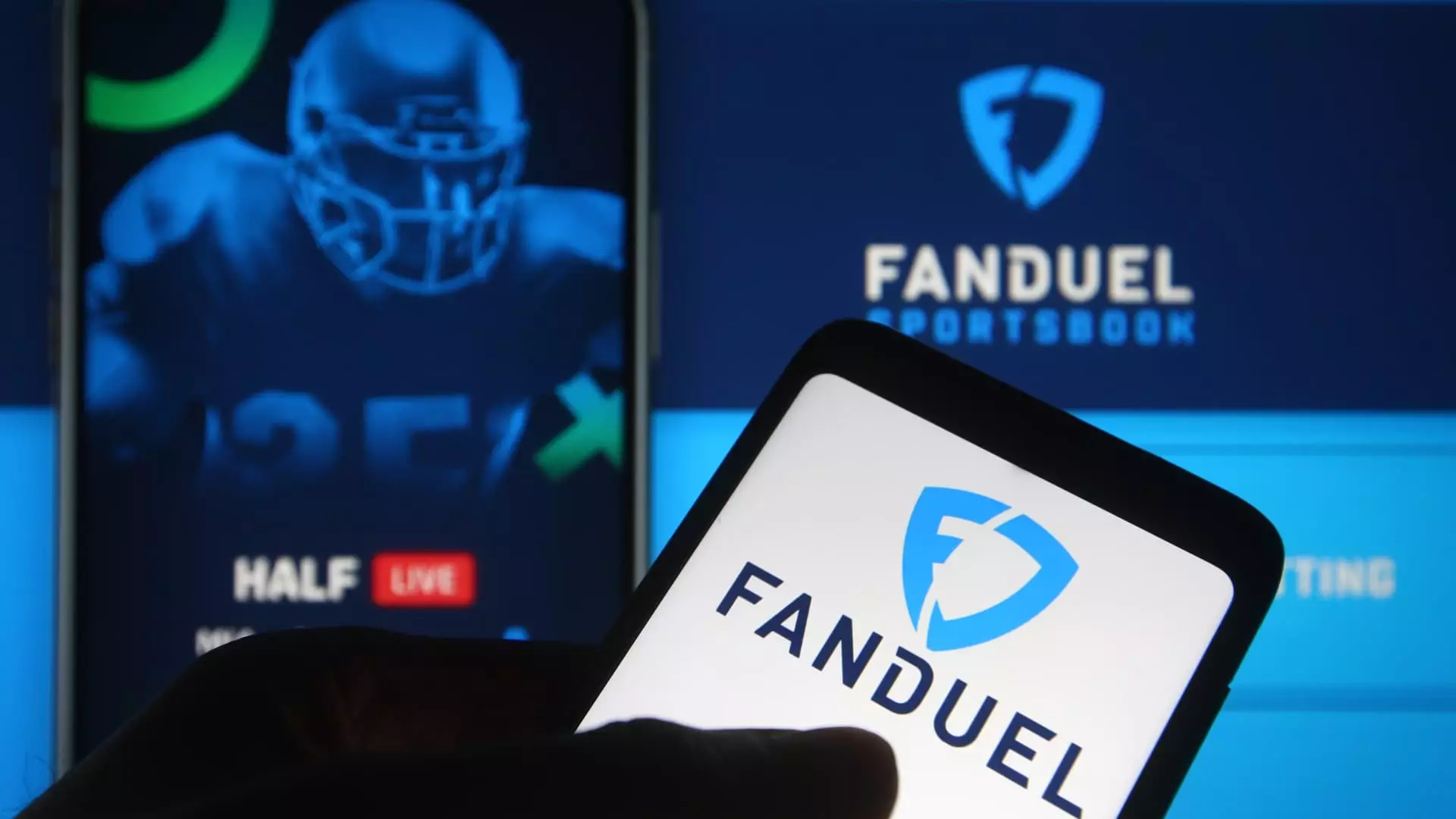In recent years, regional sports networks (RSNs) have faced significant challenges as the landscape of sports media evolves. The financial struggles of Diamond Sports, the operator of Bally Sports channels, have highlighted systemic issues within the industry, emphasizing how changes in viewership habits and financial pressures can disrupt longstanding operations. As they navigate through bankruptcy proceedings, Diamond Sports has initiated an impactful partnership with Flutter-owned FanDuel, signaling a strategic pivot that aims to balance the scales as well as adapt to a transforming sports entertainment market.
Diamond Sports announced its deal to secure naming rights from FanDuel, perhaps as a way to rejuvenate their brand amid rising competition from direct-to-consumer streaming services and shifting media consumption patterns. This transition comes at a crucial time, coinciding with the start of the National Hockey League (NHL) season and just days before the National Basketball Association (NBA) season kicks off. The implications of this agreement extend beyond mere branding; they offer Diamond Sports the potential for financial recovery and new growth opportunities, positioning the firm to regain its footing within the volatile sports broadcasting arena.
Part of the deal includes provisions for FanDuel to acquire up to 5% equity in the reorganized Diamond Sports, alongside performance warrants for the same percentage. Such stakes could not only improve FanDuel’s standing as a significant player in sports media but also foster a closer alignment between traditional broadcasting and online gaming platforms. The collaboration reflects Diamond Sports’ understanding of the necessity to leverage its existing viewership with FanDuel’s expansive online presence, particularly as sports betting continues to grow across the United States.
However, the road to recovery remains rocky with conditions subject to court approvals and a mounting list of obligations as they strive for bankruptcy exit. The attempts to solidify this partnership—with discussions reportedly beginning as early as February—reflect a desire to have a sustainable model for future broadcasting efforts. The success of this partnership could hinge on how well both parties can navigate these complexities while maintaining operational viability in an evolving marketplace.
The bankruptcy of Diamond Sports is not merely a corporate restructuring; it has far-reaching implications for how local sports are consumed. The departure of teams from the RSN model has accelerated, as organizations within Major League Baseball (MLB) and the NBA seek to reclaim local broadcast rights and pursue alternate viewing options. As Diamond steps back from agreements with multiple MLB teams, including high-profile franchises, the consequences of these decisions are palpable. With streaming services gaining traction and traditional viewership declining, national leagues are realizing the importance of local access to their fanbases.
As teams start abandoning regional networks, it reflects a broader trend where local fan engagement is being redefined. The emergence of in-house streaming services has the potential to provide a tailored viewing experience, catering directly to the local markets without the encumbrance of RSN stipulations. This trend puts additional pressure on Diamond Sports and similar entities to innovate and offer compelling offerings in an increasingly competitive climate.
In response to these challenges, Diamond Sports must not only focus on stabilizing its financial situation but also adapt to the shifting viewing preferences of sports fans. Embracing digital distribution and partnerships could present opportunities for reaching wider audiences. Given FanDuel’s stronghold in online gaming, Diamond Sports’ association could lead to unique content offerings and enhanced engagement mechanisms to attract both traditional viewers and digital natives alike.
As Diamond Sports looks to emerge from bankruptcy, questions remain regarding how effectively they can turn around their operations while navigating complex relationships with the NBA, NHL, and MLB. The impending naming rights deal with FanDuel may offer newfound hope, yet it serves as a stark reminder of how fragile the sports broadcasting ecosystem has become.
The partnership stands as a pivotal moment for Diamond Sports—a potential lifeline amid formidable storms, or a mere patch in a broader narrative of disruption. As the company prepares for this transformative phase, the outcome will depend on strategic execution, engagement with fans, and the ability to adapt swiftly to new market realities. The prevailing winds of change await, and how Diamond Sports sails through will shape its future—and perhaps the future of regional sports broadcasting as a whole.

